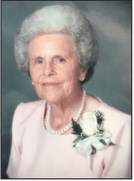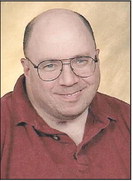Robert Burren Morgan, former Attorney General of North Carolina, United States Senator and a prominent figure in North Carolina politics for a half century, died Saturday, July 16, at his home in Buies Creek, N.C. Morgan, 90, was born on Oct. 5, 1925, near Lillington in Harnett County. He was the son of James Harvey Morgan and Alice Butts Morgan.
Morgan attended Lillington public schools and earned a degree from East Carolina University. He graduated from the Wake Forest University School of Law. While still a student at Wake Forest, he filed as a candidate for the office of Clerk of Court of Harnett County and was elected, serving from 1950-1954. This launched Morgan’s political career. He was a Democrat and a populist and throughout his life he championed the causes of working people and gave voice to their concerns and aspirations.
Morgan established a successful law practice in Lillington and became known as a skilled trial attorney specializing in personal injury, criminal defense, real property law and anti-trust. In 1955, he was elected to the North Carolina Senate and rose to its highest office, President Pro Tempore. He served until 1968 when he was elected Attorney General of North Carolina. Four years later he was re-elected.
As Attorney General, Morgan established one of the nation’s first consumer protection offices and was a tenacious advocate for North Carolina residents before the State Utilities Commission that sets rates paid for electric power. He was responsible for the passage of the “Little FTC Act” that made unfair and deceptive trade practices unlawful in North Carolina. He reorganized the Attorney General’s office and hired outstanding young law graduates and practicing attorneys, two of whom later became Chief Justice of the North Carolina Supreme Court. He also hired the first African-American lawyer to serve in the Attorney General’s office.
Morgan believed strongly that law enforcement officers should receive professional training and persuaded the North Carolina General Assembly to establish a law enforcement training academy and to adopt standards for officers. He revamped the State Bureau of Investigation, which was then in the Justice Department, and after his service in the United States Senate served as Director of the SBI for several years. His landmark achievements as Attorney General of North Carolina and the leadership he provided for the National Association of Attorneys General was recognized by his peers who presented him the Wyman Memorial Award, naming him the Outstanding Attorney General in the United States.
Morgan ran for and was elected to the United States Senate seat previously held by Senator Sam J. Ervin. Morgan was a close friend of former Senator and Vice President Hubert Humphrey who came to North Carolina and keynoted his campaign kickoff event in Buies Creek.
He was a master of the legislative process, and the experience he obtained in the North Carolina State Senate served him well in the United States Senate. He held prestigious committee assignments that included Banking, Armed Services, Public Works and Select Intelligence. His expertise in the area of anti-trust was immediately recognized by his colleagues, and he was tapped by the leadership to lead the floor debate along with former Massachusetts Senator Ted Kennedy that resulted in the passage of landmark federal anti-trust legislation that had languished in the U.S. Senate for years.
While a member of the U.S. Senate, Morgan was appointed by Senate Majority Leader Robert Byrd to the Board of Regents of the Smithsonian Institution, chaired by the Chief Justice of the United States Supreme Court. He served faithfully and with distinction and subsequently was appointed to the National Portrait Gallery Commission. He remained a Regent Emeritus of the Smithsonian and continued to be active therein until his health began to fail.
Morgan was a fierce advocate for his alma mater, East Carolina University, and served as chairman of its board of trustees. He led the battle for university status for East Carolina and the effort to establish its medical school. East Carolina recognized his outstanding leadership and devotion by conferring upon him an honorary degree; presenting him with the Jarvis Medal, the University’s highest service award; naming him Outstanding Alumnus; and presenting him with its Alumni Service Award.
Morgan returned to the practice of law in 1991, opening a law office in Raleigh and Lillington with his two daughters. There he lovingly shared with them, not only his knowledge, but also his commitment to the justice that the law should provide. Trying cases with his daughters was one of the most meaningful gifts that he gave them. He continued to practice law into his 80s.
From 2000 to 2003, Morgan served as founding president of the North Carolina Center for Voter Education, a Raleigh-based nonprofit and nonpartisan organization that seeks to increase civic engagement in North Carolina. He persuaded his friend Senator John McCain of Arizona and later candidate for President, to come to Raleigh and make the organization’s kickoff speech. Morgan had a life-long interest in issues related to persons with disabilities and also was an advocate for environmental causes.
He had a distinguished military career. He enlisted in the United States Navy and graduated from Midshipman’s School shortly before the end of WWII, serving from 1944-1946. He was recalled during the Korean Conflict serving from 1952-1955. He remained in the Navy Reserve through 1971, advancing to the rank of Lieutenant Commander. He served in the United States Air Force Reserve from 1971-1973, retiring as Lieutenant Colonel.
Robert Morgan was a lifelong Baptist and served on the Board of Deacons of Memorial Baptist Church in Buies Creek and as Chair of the North Carolina Baptist Retirement Homes Foundation.
Robert Morgan is survived by his wife, the former Katie Earle Owen of Roseboro and three children: Margaret Holmes and husband Edward of Chapel Hill and grandchildren Grace and Robert; Mary Morgan of Raleigh and granddaughter Elizabeth Morgan Reeves; and Rupert Tart and wife Valerie of Angier and granddaughters Emma Jayne Crews, and Heather Tart Schaffer and her husband, Davey. Surviving nieces and nephews are Mary Lou Matthews and husband Billy Ray, Nancy Morgan Brady, and Larry Morgan and wife Nancy. He had two sisters and a brother who predeceased him: Lucille Morgan Byrd, Esther Morgan and Melvin Morgan. He was also predeceased by his daughter, Alice Jean Morgan.
A memorial service will be held in the Butler Chapel at Campbell University in Buies Creek at 2 p.m. on Thursday, July 21. The family will receive friends immediately following the service in the Chapel gathering hall.
In lieu of flowers, friends may make contributions to J.Y. Joyner Library Robert Morgan Papers, East Carolina University, Mailstop 516, Greenville, NC 27858-4353; or Memorial Baptist Church, Alice Jean Morgan Endowment, P.O. Box 485, Buies Creek, NC 27506 or to the charity of one’s choice.
Arrangements by O’Quinn-Peebles-Phillips Funeral Home & Crematory, Lillington. Online condolences at www.oppfh.com.
Robert Burren Morgan

 The Daily Record
The Daily Record

